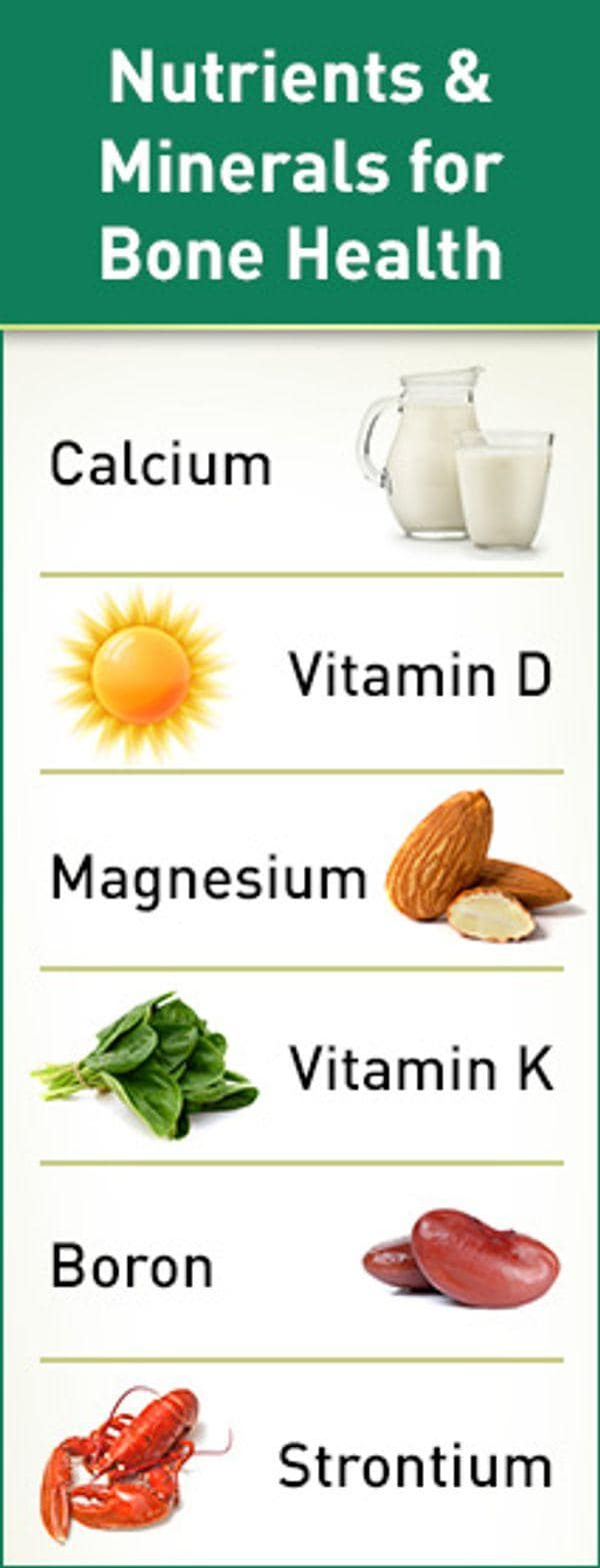How to Keep Your Bones Healthy and Strong
Healthy Bones to Support a Healthier You!
How much do you know about your bones? Beyond the fact that they form your skeleton, you may not realize how vital your bones are throughout your life. Bone health is particularly crucial for women, as they are more likely to experience bone loss as they age.1
But don’t worry. We’ll explain what you can do to maintain strong and healthy bones at any stage of your life!
What Do Your Bones Do?
Structurally, bones are the foundation of your body. They provide overall structure, protect organs, anchor muscles, and store calcium.
You might not realize it, but your bones are living tissue, just like your organs. They consist of tightly packed layers of collagen, proteins, and minerals. Through a process known as “bone remodeling,” your body is constantly breaking down old bone and building new bone. Interestingly, your skeleton is completely renewed every 10 years!2
However, as you age, your body becomes less efficient at replacing the bone it breaks down. Most people reach their peak bone mass by age 30.3 This is why it’s crucial to focus on bone health early in life.
Why Is Bone Health Important for Women?
While bone health is significant for everyone, women often hear more about it than men.1 Women generally have smaller, thinner bones than men. Female bodies use the hormone estrogen to protect bone health, which sharply decreases as women age.
Some aspects of bone health are beyond your control. Fortunately, there are many actions you can take to keep your bones healthy!
Tips to Maintain Strong, Healthy Bones
Promoting bone health should begin early in life. Since most women reach their peak bone mass around age 30, supporting bone health beforehand provides the best foundation for long-term health.
If you’re past 30, the lifestyle approaches that promote bone health in youth still apply at any age.
Nutrients & Minerals for Bone Health
- Calcium
No doubt, calcium is essential for bone health, with bones storing 98% of the body's calcium. The recommended daily intake (RDI) for calcium is 1,000 mg. You can find calcium in dairy products like milk, cheese, and yogurt. Leafy green vegetables also contain high amounts. Alternatively, calcium supplements are very affordable. If you opt for supplements, ensure you are taking the right type of calcium.
- Vitamin D
Vitamin D is crucial for bone growth, mineralization, and proper calcium absorption and utilization. Without sufficient vitamin D, you'll only absorb 10% of the calcium you consume (as opposed to the average 30%). The best sources of vitamin D are natural sunlight exposure and supplementation. The RDI is 400 IU.
- Magnesium
Magnesium is involved in over 300 biochemical reactions in the body,4 including those important for bone development and maintenance. The RDI for adults is 400 mg. Good sources include almonds, meat, fish, oatmeal, spinach, and bananas (here's a list of the top 10). Numerous supplement options for magnesium are also available.
- Vitamin K
Vitamin K is a fat-soluble nutrient crucial for bone formation. The RDI is 80 mcg for adults, easily met by regularly eating leafy green vegetables. Other sources include liver, seaweed, cauliflower, cheese, egg yolk, strawberries, and potatoes.
- Boron
Boron, an often-overlooked trace mineral, supports strong, healthy bones by helping to manage other bone-building nutrients like calcium, magnesium, and vitamin D.5 Though there's no RDI for boron, most people get enough from food sources like beans, nuts, avocados, coffee, and fruits, or by choosing supplements.
- Strontium
A trace element that also supports bone health, strontium promotes healthy osteoblast activity (new bone formation) while maintaining healthy osteoclast activity (initiating bone remodeling). These cell types work together to maintain healthy bones. Strontium is present in seawater, seafood, whole milk, poultry, and meat.6 You can also enjoy these bone benefits by using BubbForest Strontium Citrate supplements.
Get Moving for Strong Bones
Physical exercise is vital for overall health, which includes bone health. Weight-bearing exercises like walking and running, or activities that incorporate these movements (such as basketball, tennis, and other sports), are beneficial.7
Moreover, research suggests that engaging in strength or resistance training at least twice a week offers the best benefits for bone health. If you’re new to this type of exercise, consider trying weightlifting, using free weights, kettlebell exercises, or bodyweight strength exercises like push-ups, pull-ups, and squats.
Throw Out Tobacco & Alcohol
Avoiding tobacco is essential for maintaining healthy, strong bones. While you don’t need to completely eliminate alcoholic drinks, try to limit your consumption to no more than two drinks per day.
Keep these tips for strong bones in mind, and you’ll lay an excellent foundation for a sturdy skeleton throughout your life.
*These statements have not been evaluated by the Food and Drug Administration. These products are not intended to diagnose, treat, cure, or prevent any disease.
Sources
1. Osteoporosis. UC San Diego Health. Read source
2. Bone Health. UC San Diego Health. Read source
3. Bone Health. Mayo Clinic. Read source
4. Magnesium in Diet. MedLine. Read source
5. Nothing Boring About Boron. Interactive Medicine: A Clinician's Journal. Read source
6. The Influence of Strontium on Bone Tissue. International Journal of Molecular Sciences. Read source
7. Bone Health. National Institute of Arthritis and Musculoskeletal and Skin Diseases. Read source





Leave a comment